Review: LEOPOLDSTADT at Shakespeare Theatre Comany
STC brings Tom Stoppard's epic, personal production to DC
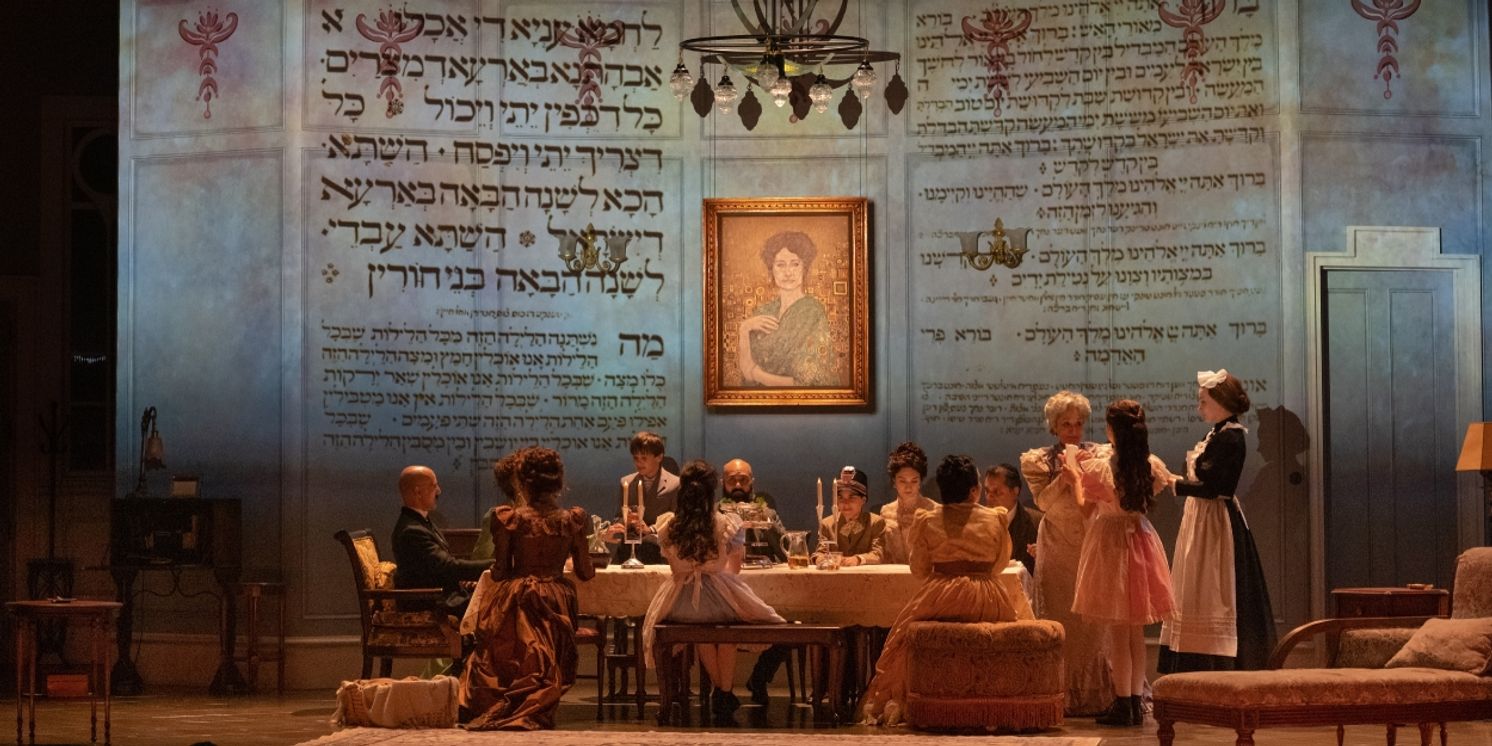
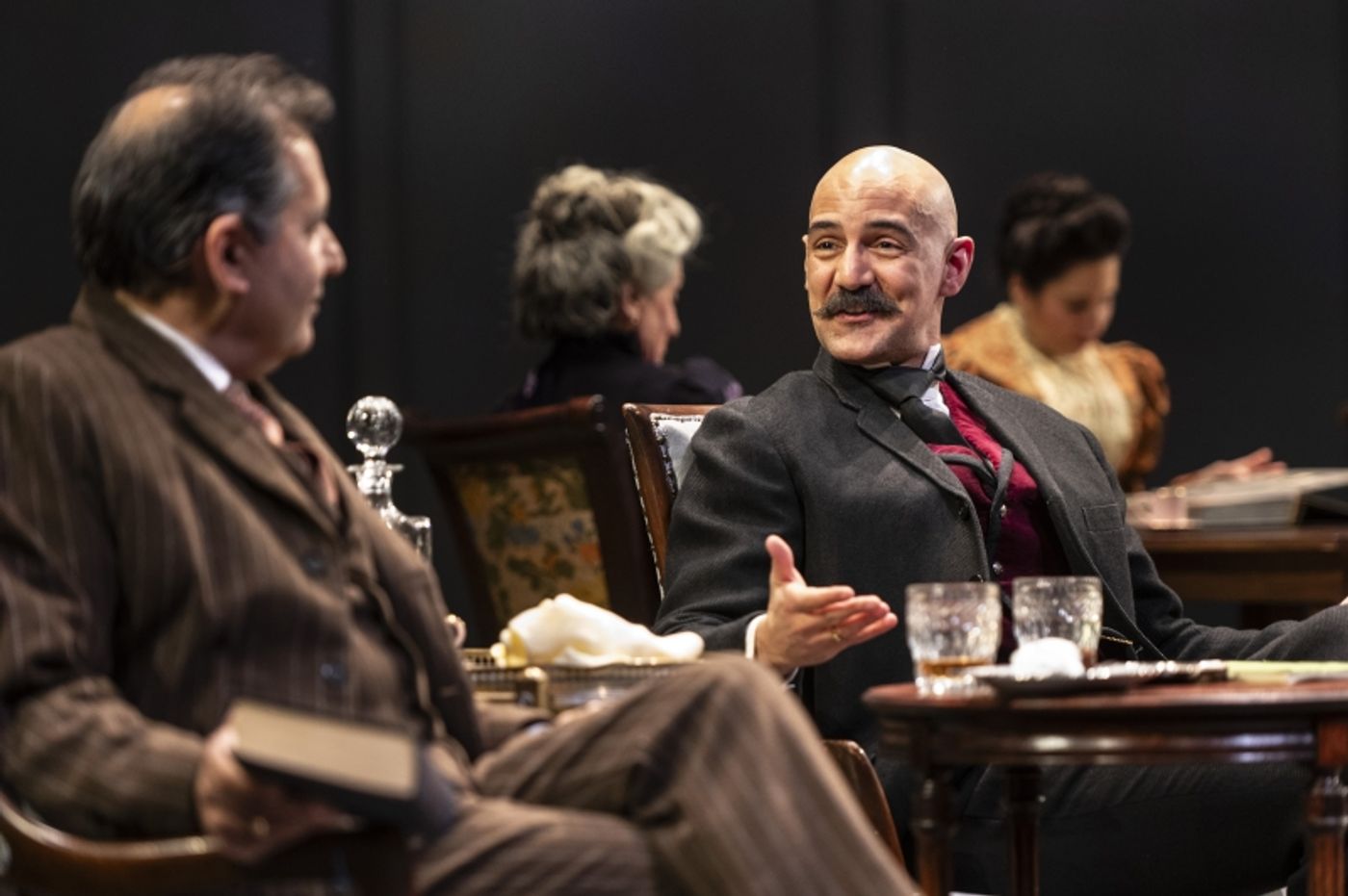
Photo by Teresa Castracane.
Leopoldstadt, a weighty and ambitious work by award-winning author Tom Stoppard, is on stage now at the Shakespeare Theatre Company. The modern epic traces a Viennese Jewish family from the zest and promise at the eve of the 20th century, through the devastations of the Great War and the annexation of Austria by the German Reich, to the Holocaust and the tender, broken years after.
Leopoldstadt, which earned both the Tony and Olivier awards for Best Play, chronicles multiple generations of the sprawling Merz-Jacobowitz family in Vienna. The play opens in 1899, a time of great historical and social change in art and inquiry, in knowledge and beauty. It was a time when Jewish identity and Austrian culture were deeply intertwined – a brief moment before the rise of antisemitism that led to the tragedies of the wars and the Holocaust.
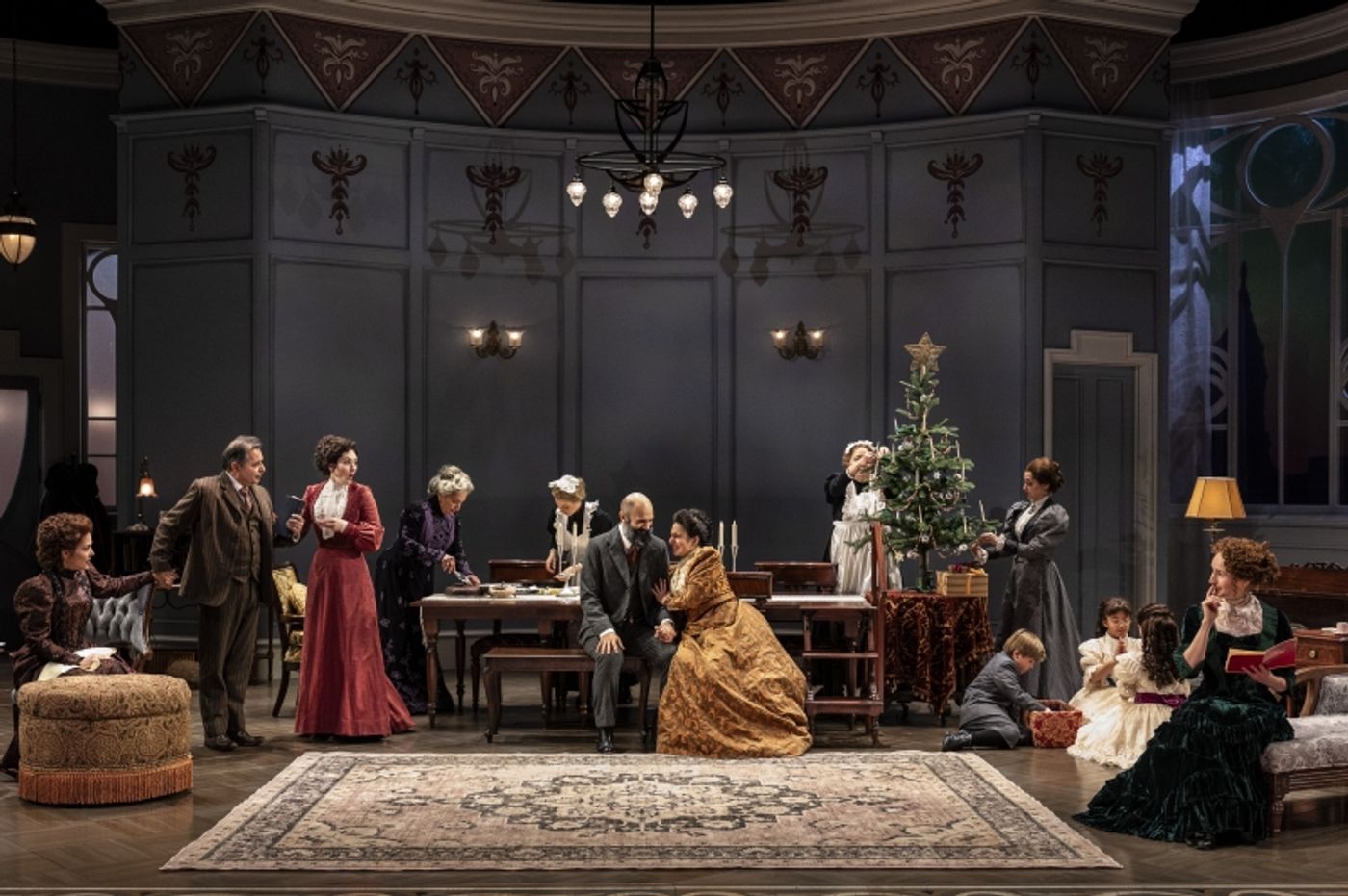
The play opens with a Christmas tree-trimming to honor the traditions of the Christian members of the family. The family speaks of traditions and marvels at all that has happened in the 50 years since they left the shtetl behind. We follow family members through the years, through celebrations of Passover and brises, and see through their everyday dynamics the steady erosion of the family’s safety in the rising antisemitism and the devastation of the Holocaust. Throughout, they must grapple with the complicated and tangled questions of their Jewish and Austrian identities.
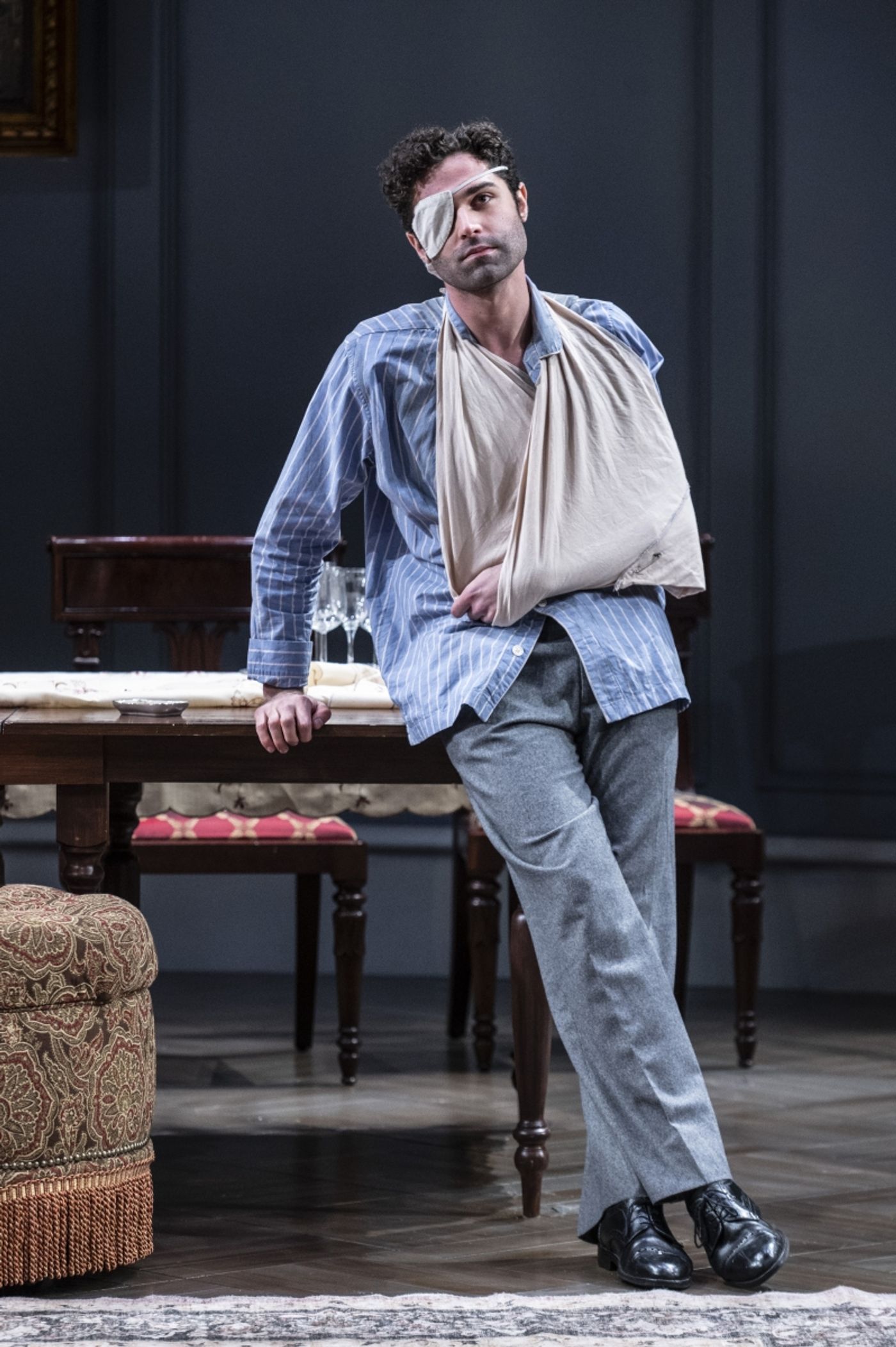
Photo by Teresa Castracane.
The epic features 21 actors, portraying more than 40 characters. It is a true ensemble work. Yet many actors have memorable break-out moments even among the action of the packed stage. Nael Nacer brings gravitas to Hermann who builds the family business, rises in Viennese society, and weathers sting and shame of societal prejudice. His aspirations, disillusionment, pride and unease are the memorable engine that drives much of the play. Brenda Meaney as Hermann’s Christian wife, Gretl, commands attention even in the most crowded scenes, evolving from the lively young bride who is captured in a portrait by an up-and-coming artist to an aging patient losing her wits and memory. Firdous Bamji brings quiet dignity to the stuttering mathematician who dreams of proving Reimann’s hypotheses and gaining faculty tenure. Phyllis Kay is the proud matriarch Grandma Emilia, gathering her busy family around. And that busy family includes many pre-teen cast members who bring life and authenticity to their work – this is heavy material and they bring freshness and honesty to the stage. Mishka Yarovoy is searing as Jacob, back from the Great War seeing nothing gained but the loss of his eye and his useless arm. Yarovoy is also Leo (a character that most mirrors playwright Tom Stoppard) who joins with remaining family members Nathan (Joshua Chessin-Yudin) and Rosa (Rebecca Gibel); the relatives piece together the intervening years for Leo, who has no memory of Vienna and no knowledge of what has happened to the family.
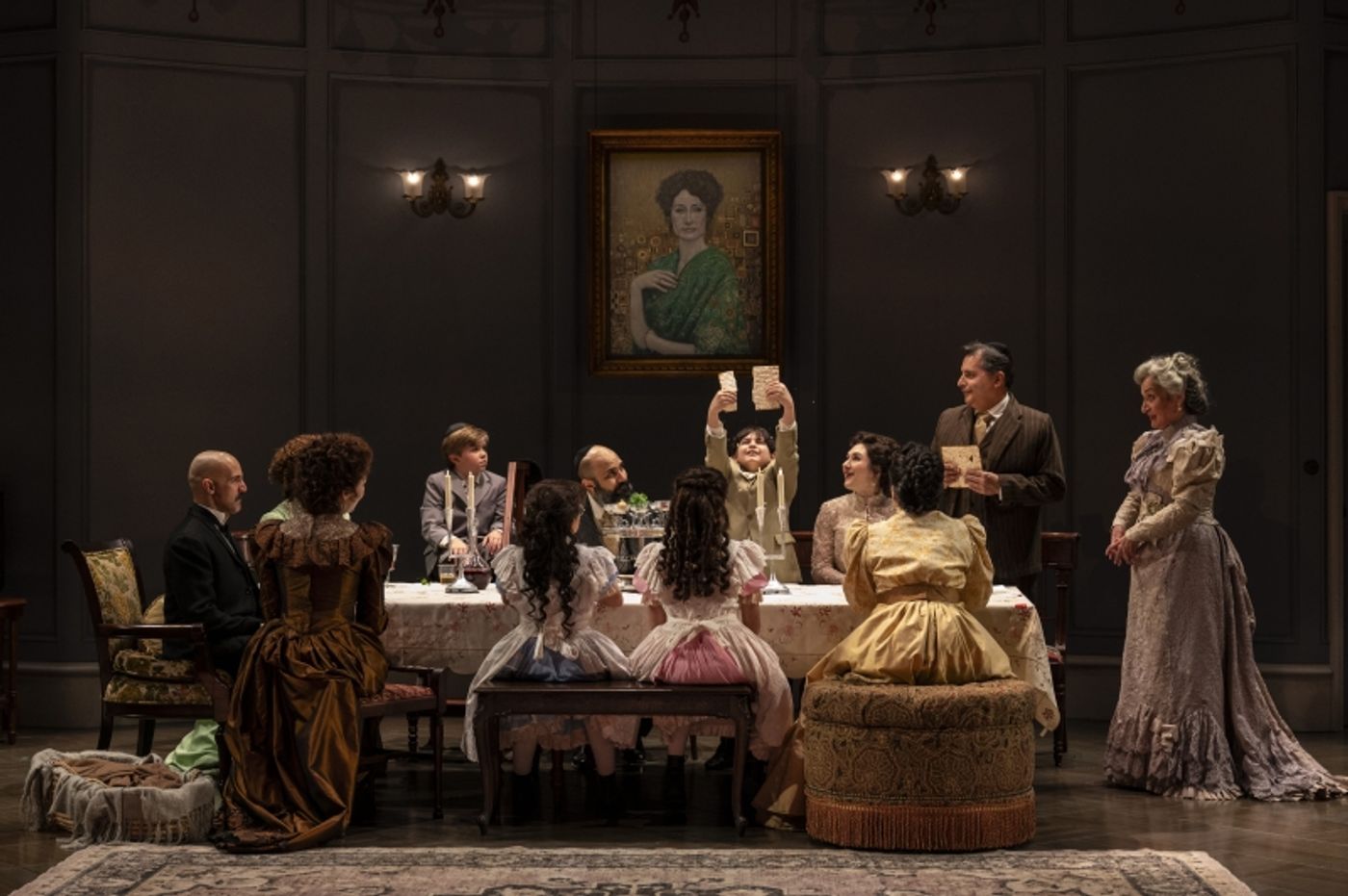
Forty characters are a lot to keep track of – in fact, the playbill includes a detailed family tree to help the audience since even the characters laugh that they’re not quite sure how they’re linked (“she’s my sister-in-law’s sister-in-law, I think?”). Yet in the final scene Leo, Nathan and Rosa pour over a sketch of a family tree and the three review all the names and the outcome of each person. It is devastating. And we realize that although we may be vague on each character and their specific relationship, we do feel a bond with them and mourn the losses.
Tom Stoppard was in his 50s – well established in a career that includes the plays Rosencrantz and Guildenstern Are Dead, Travesties, Arcadia and The Invention of Love, and the Oscar-winning Shakespeare In Love – when a cousin he didn’t previously know contacted him and shared the family history. All four of Stoppard's grandparents and three of his mother’s sisters died in the Holocaust. He only learned of his Jewish roots through this long-lost relative. The family in Leopoldstadt isn’t Stoppard’s, but the story is similar.
Celebrated playwright/director Carey Perloff, a D.C. native and frequent Stoppard collaborator, surely and ably directs the production. Together with Stoppard, they slightly revised and pared back the version that originally ran on Broadway and in the West End. “My mother was a Viennese refugee who fled the Nazis in March 1938, so Stoppard’s gorgeous and heartbreaking play has enormous resonance for me personally,” Perloff told the Shakespeare Theatre Company. “Leopoldstadt is a play about a complicated Jewish family, and about the choices we make and fail to make in our attempts to survive and to preserve our culture. It is also Stoppard’s most deeply personal play, in which he reckons with the impact of his own Jewish heritage on his life and work, and he has been a crucial part of our collaboration throughout the process.”
The play is Stoppard’s personal exploration of his family's history and his own identity. Yet there is a frustrating emotional distance. Leopoldstadt is massive in scope – the weight of the ideas and history, the number of characters and the span of time. It is a lot to take in upon one viewing – I continue to revisit it and unpack ideas. But its scope is a barrier to a strong emotional connection to the individuals and their stories in the moment. I wanted to know the characters I spent 2-1/2 hours with better.
Ultimately, one never forgets Leopoldstadt is a theater piece. Without a sense of intimacy, you don’t lose yourself in the story.
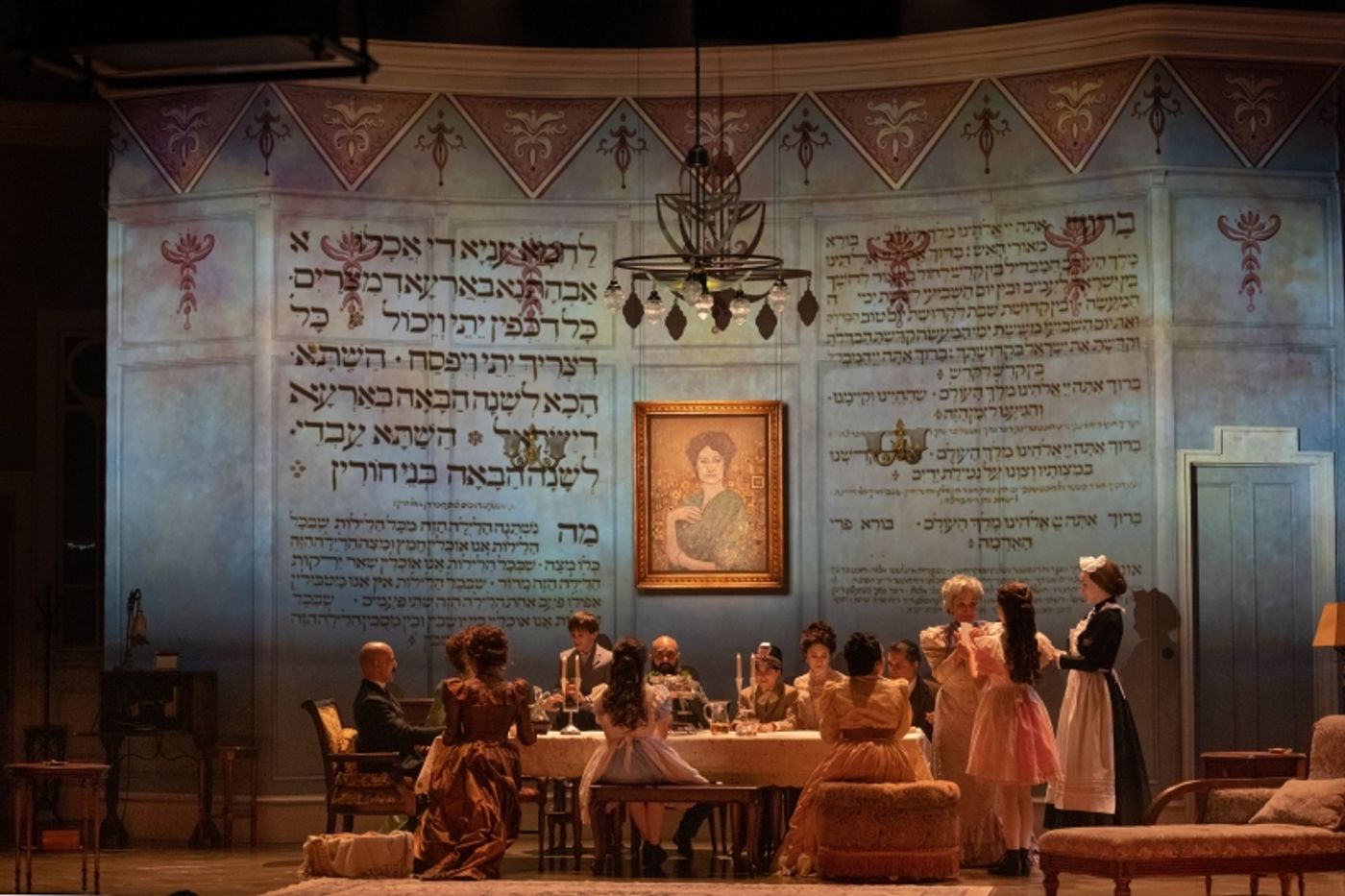
Photo by Liza Voll, courtesy of The Huntington.
Leopoldstadt’s designers have created a world that begins as a lush and vibrant Viennese home that becomes more claustrophobic and drained of color as the play moves through the decades. Scenic Designer Ken MacDonald’s set ushers us into the family’s tasteful home featuring a long table for gathering; a cozy nook for a cigar, whiskey and conversation; and a piano to practice the music of fellow Austrians Mahler and Schoenberg. By the final scene the room is barren and gray. Robert Wierzel’s lighting design is a significant part of this subtle shift from warm hues to the somber institutional tones that evolves scene by scene. The room’s paneled walls seemingly fall away as they become the screen for Yuki Izumihara’s powerful projections that bring in scenes from the outside like the swastikas and gathering antisemitic mobs; the projections do important work in placing us in time and giving us historical context. Sound designer and composer Jane Shaw underscores the scenes with waltzes and symphonies of Vienna that give way to breaking glass and running boots. Alex Jaeger’s costumes are a swirl of color and history, bringing us through nearly 60 years and helping differentiate the characters (helpful since most cast members play multiple roles). Tom Watson’s wig and hair design is similarly vital for a play of this scope.
Leopoldstadt is a timely and important work by one of the most gifted contemporary playwrights. It is a theater event and should be experienced – particularly with the direction, acting and production values of such high caliber. But in many ways it is a work to be read, studied and contemplated as well. It’s a dense work – not one where an audience member can easily lose themselves in the characters, emotions and ideas.
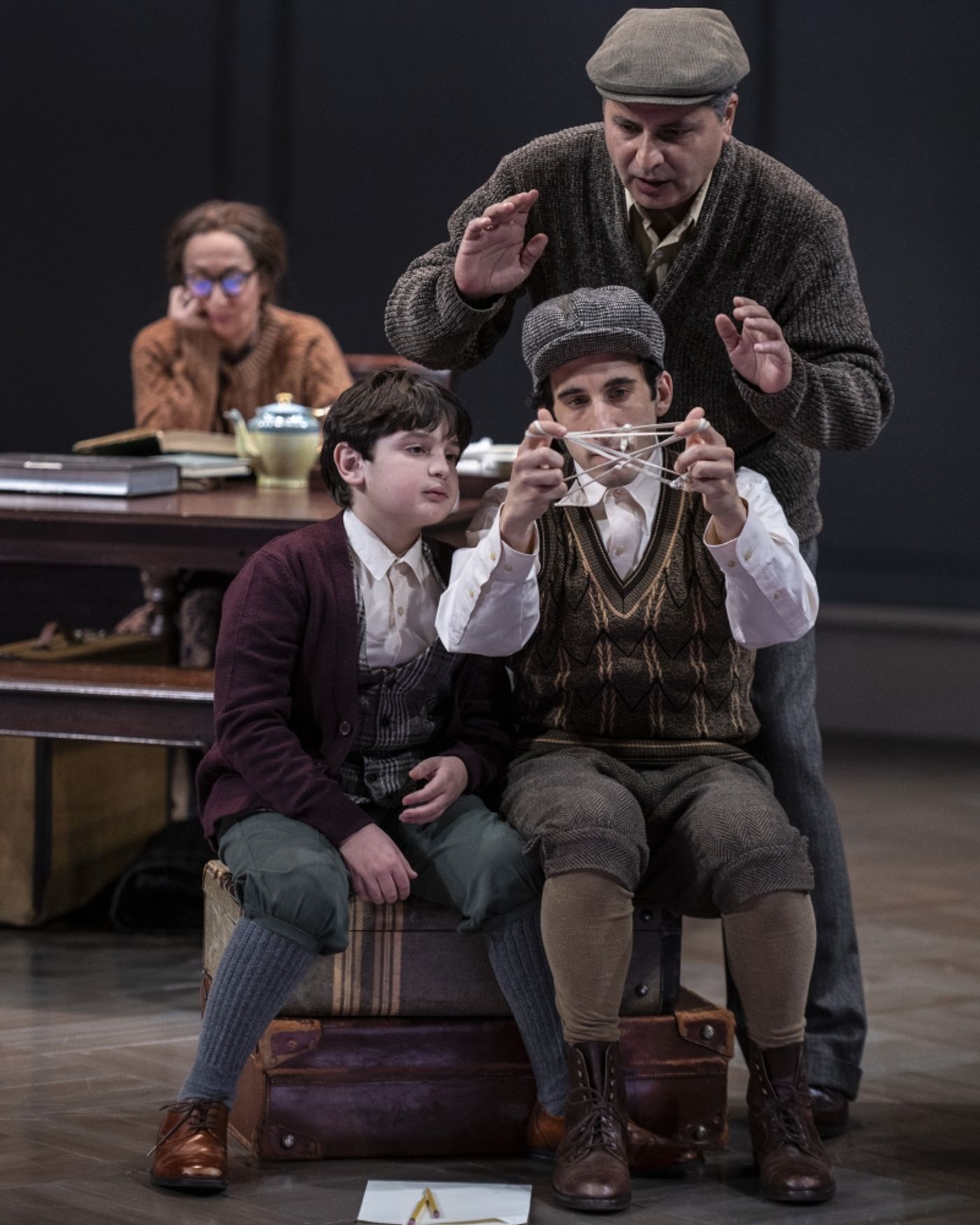
Photo by Teresa Castracane.
Running Time: 2 hours and 35 minutes including a 15-minute intermission.
Leopoldstadt, by Tom Stoppard and directed by Carey Perloff, is produced by the Shakespeare Theatre Company in association with the Huntington. It is presented at Sidney Harman Hall, 610 F Street, NW, Washington, D.C. 20004 and runs through Sunday, December 29. For tickets and schedule, accessible performance information, special events, attendance policies and further information visit the company's website.
Cast of Leopoldstadt:
Fritz, Percy: Samuel Adams
Ludwig, Kurt: Firdous Bamji
Zac, Nathan: Joshua Chessin-Yudin
Wilma: Sarah Corey
Hanna, Hermine: Anna Theoni DiGiovanni
Hanna, Poldi: Adrianne Krstansky
Otto, Civilian: Samuel Douglas
Ernst: Maboud Ebrahimzadeh
Eva, Nellie: Rachel Felstein
Eva, Grandma Emilia: Phyllis Kay
Hilde, Rosa: Rebecca Gibel
Gretl: Brenda Meaney
Hermann: Nael Nacer
Jana, Sally: Anna Slate
Jacob, Leo: Mishka Yarovoy
Pauli, Young Leo: William Morford
Pauli, Young Leo, Heini, Young Jacob: Teddy Schechter
Young Sally, Mimi, Young Rosa, Bella: Adrianna Weir
Young Sally, Mimi: Mila Weir
Heini, Young Jacob: Harrison Morford
Young Rosa, Bella: Audrey Ella Wolff
Understudy: Jacob Schmitt, Jackie Scholl
Artistic Team:
Director: Carey Perloff
Playwright: Tom Stoppard
Scenic Designer: Ken MacDonald
Costume Designer: Alex Jaeger
Lighting Designer: Robert Wierzel
Sound Designer and Composer: Jane Shaw
Projection Designer: Yuki Izumihara
Wig and Hair Designer: Tom Watson
Voice and Dialect Coach: Lisa Beley, Lee Nishri-Howitt
Fight and Intimacy Consultant: Jesse Hinson
Movement Director: Daniel Pelzig
Production Stage Manager: Laura Smith
Reader Reviews
Videos

